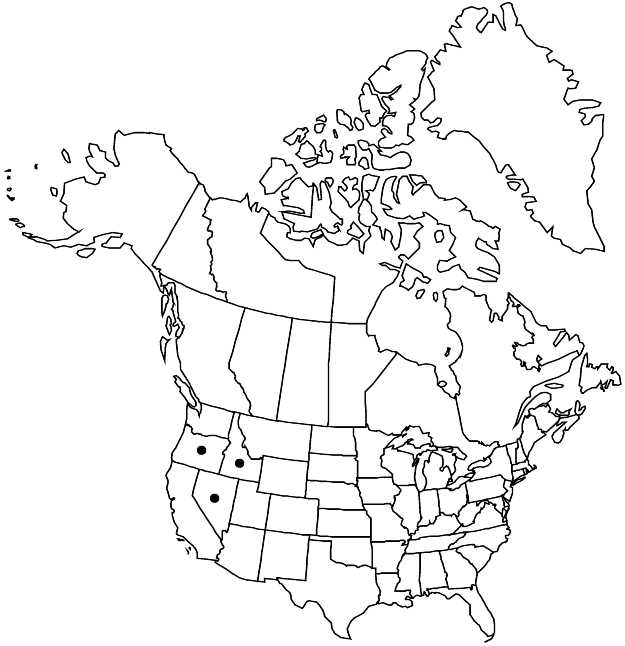Difference between revisions of "Polygonum heterosepalum"
Madroño 10: 250. 1950.
FNA>Volume Importer |
imported>Volume Importer |
||
| (4 intermediate revisions by 2 users not shown) | |||
| Line 8: | Line 8: | ||
}} | }} | ||
|common_names=Dwarf desert knotweed | |common_names=Dwarf desert knotweed | ||
| + | |special_status={{Treatment/ID/Special_status | ||
| + | |code=E | ||
| + | |label=Endemic | ||
| + | }}{{Treatment/ID/Special_status | ||
| + | |code=C | ||
| + | |label=Conservation concern | ||
| + | }} | ||
|basionyms= | |basionyms= | ||
|synonyms= | |synonyms= | ||
| Line 33: | Line 40: | ||
-->{{#Taxon: | -->{{#Taxon: | ||
name=Polygonum heterosepalum | name=Polygonum heterosepalum | ||
| − | |||
|authority=M. Peck & Ownbey | |authority=M. Peck & Ownbey | ||
|rank=species | |rank=species | ||
| Line 47: | Line 53: | ||
|publication title=Madroño | |publication title=Madroño | ||
|publication year=1950 | |publication year=1950 | ||
| − | |special status= | + | |special status=Endemic;Conservation concern |
| − | |source xml=https:// | + | |source xml=https://bitbucket.org/aafc-mbb/fna-data-curation/src/2e0870ddd59836b60bcf96646a41e87ea5a5943a/coarse_grained_fna_xml/V5/V5_1150.xml |
|subfamily=Polygonaceae subfam. Polygonoideae | |subfamily=Polygonaceae subfam. Polygonoideae | ||
|genus=Polygonum | |genus=Polygonum | ||
Latest revision as of 22:08, 5 November 2020
Herbs, compact, often cushion-like. Stems erect, green or reddish, simple or branched near base, not wiry, 1.5–5 cm, glabrous. Leaves uniformly distributed, dense, not articulated to ocreae, basal leaves persistent or caducous, distal leaves gradually reduced to bracts; ocrea 3–6 mm, glabrous, proximal part cylindric, distal part disintegrating almost to base, with whitish, straight, rigid fibers; petiole absent; blade 3-veined, without pleats, linear to lanceolate, 10–20 × 0.6–2.7 mm, margins revolute, smooth, apex spine-tipped. Inflorescences axillary; cymes in most axils, 2–3-flowered. Pedicels enclosed in ocreae, erect, 0.1–1 mm. Flowers closed; perianth 2.3–2.7 mm; tube 3–7% of perianth length; tepals overlapping, whitish with whitish or pink margins, petaloid, oblong, navicular, dimorphic, outer 2 shorter than inner 3, outer 2 0.8–1.2 mm, inner 2.3–2.7 mm, papillose at base, apex acute or acuminate; midveins unbranched; stamens 5–6. Achenes enclosed in perianth, olive brown, narrowly ovate to ovate-lanceolate, 1.5–2 mm, faces subequal, shiny, smooth.
Phenology: Flowering Jun–Aug.
Habitat: Dry waste ground, open flats in sagebrush plains, ponderosa pine forests
Elevation: 1000-1500 m
Distribution

Idaho, Nev., Oreg.
Discussion
Of conservation concern.
Selected References
None.